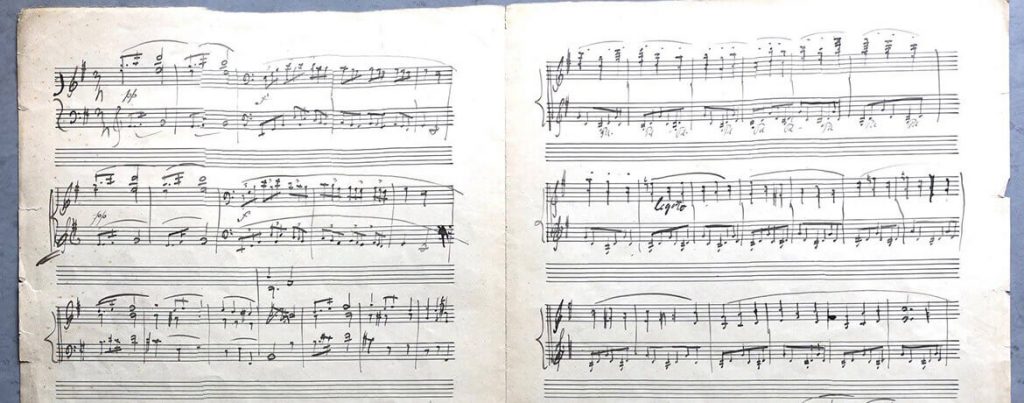Czech composer Antonín Dvořák passed away in 1904, but a new work called From the Future World, co-authored by him and artificial intelligence project, will have its premiere in Prague on November 15 at the Dvořák Hall of the Rudolfinum.
An unfinished
two-page musical sketch by Dvořák was discovered a century after it
was written in the archives of the Czech Music Museum, during
research on the composer’s later career. It was completed by AIVA,
witch stands for Artificial Intelligence Virtual Artist. AIVA read
through all of Dvořák’s compositions and built mathematical
models to predict how the composer worked.
The third movement of From the Future World will be performed by the Prague Philharmonia (PFK) as part of program with works by Britten, Stravinksy, Satie, and Mussorgsky, with Emmanuel Villaume conducting. Czech tenor Petr Nekoranec will be the soloist in Britten’s song cycle Les illuminations.
“There are various ways of dealing with inspiration or even re-working of other people’s works: it can be an homage, or an attempt to present known musical procedures in a new light. The eventual innovative result may be shocking, but may also attract a completely new type of audience. All this applies to the key item on the program, the composition From the Future World, based on a fragment of an unfinished composition by Antonín Dvořák and created by artificial intelligence AIVA,” the concert description states.

Dvořák’s sketch
became a three-movement piece using his motifs and compositional
style. The first movement completed the sketch into roughly
five-minute piece. The next two movements continued in Dvořák’s
style.
“At the very
beginning of this project there was the word ‘experiment’ — a
desire to finds out what the possibilities of artificial intelligence
regarding creative use are, and how far it can go. Apart from that,
we wanted ot create a work that would captivate the audience as well.
There was a unique debate with technology experts and musicians
during the project that was very extensive and actually revealed more
and more questions. We came to the conclusion that AVIA’s work
awakens emotions that can fully come to life in the hands of a great
musician,” Richard Stieblitz and Filip Humpl, creative directors at
Wunderman Thompson and project authors, said in a statement.
Conductor Villaume said the project raised interesting questions. “What does composing music actually mean for humans? What is artistic experience? And how important is performance for bringing a work to life? The resulting music in impressive and completely legitimate, and even makes one think of the essence and nature of God and mankind,” he said.
The title of the new piece takes its inspiration from one of Dvořák’s best-known pieces, From the New World, his ninth symphony.
AIVA is listed as co-author of the new works, and is the only virtual artist that has been allowed to assert author’s rights through the musical rights protection association SACEM. AIVA can also create new music for film soundtracks or other purposes in the style of Mozart, Bach, Beethoven, and other great composers from the past, as it has processed 30,000 compositions. It can also work in other musical styles.
Dvořák is associated closely with Prague and its environs, including the town of Nelahozeves, where he was born in 1841. While most known for his symphonies, he started out playing in pubs and at balls. He then began composing, and worked his way up through theater orchestras before he started to win international competitions and receive prestigious appointments. He is known for blending folk motifs into Romantic-era music. He conducted his own music with the Czech Philharmonic starting in 1891.
A trip to the United
States on 1892–95 acquainted him with American spirituals, which he
also blended into his music. His later years were devoted to
composing and teaching.
For more information see the PFK website or the From The Future World website.












 Reading time: 3 minutes
Reading time: 3 minutes 






















